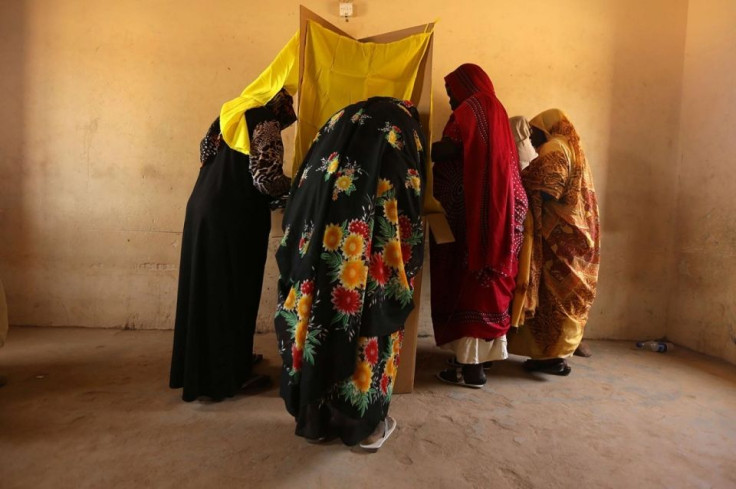Sudan Elections 2015: Controversy Over Low Voter Turnout As Tallying Begins

Sudan began tallying votes from its presidential and legislative elections Friday, with electoral observers estimating that only a third of Sudan’s 13.3 million registered voters went to the polls. However, the ruling National Congress Party (NCP) dismissed the remarks and said the Sudanese government was pleased with this week's turnout.
“We can confirm that we are satisfied about the people’s participation. For those who are talking about low turnout, we believe they are not aware of what is happening or deliberately intending to talk about low participation,” Ibrahim Ghandour, the NCP's deputy chairman, told China’s state-run Xinhua News Agency on Friday.
The Sudanese government extended elections to allow the largest possible electorate. But former Nigerian President Olusegun Obasanjo, who led the African Union’s observation mission for Sudan's elections, said two-thirds of registered voters did not cast ballots during the four days of voting. Obasanjo said the low turnout was likely due to voter apathy because of a lack of electoral competition. “I believe 30-35 percent of the voters cast their votes,” Obasanjo told Sudan’s state-run SUNA news agency Friday.
A slew of international organizations, including the African Union and the Arab League, monitored Sudan’s elections, as did 210 Sudanese organizations. China, Russia, Nigeria and seven other African countries also monitored the polls. The final results are scheduled to be announced April 27, Xinhua News Agency said.
Incumbent President Omar al-Bashir is largely expected to win re-election after the main opposition parties boycotted the polls by not fielding candidates. Bashir has ruled for 25 years and many Sudanese believe the NCP leader will claim victory by default. The hostility over the presidential election has sparked violent clashes between armed opposition groups and government soldiers.
Bashir's rule is not expected to be affected by an International Criminal Court warrant for his arrest in connection with war crimes in the country's Darfur region. The ICC, citing a need to "shift resources to other urgent cases," halted its Darfur probe in December. More recently, Bashir revealed that he refused to accept the resignation of North Kordofan Gov. Ahmed Haroun and also resisted pressure to fire Haroun over the governor's own indictment by the ICC, the Sudan Tribune reported.
The military wing of the Sudan People’s Liberation Movement opposition party began shelling rockets on major towns in South Kordofan state on Monday in an effort to disrupt the general elections. The Sudanese People’s Liberation Movement-North (SPLM-N) rebels seized ballot boxes in the southern state earlier this month in an attempt to sabotage the controversial elections, the Sudan Tribune reported. The group is banned by the Sudanese government and has had several clashes with security forces.
© Copyright IBTimes 2024. All rights reserved.





















